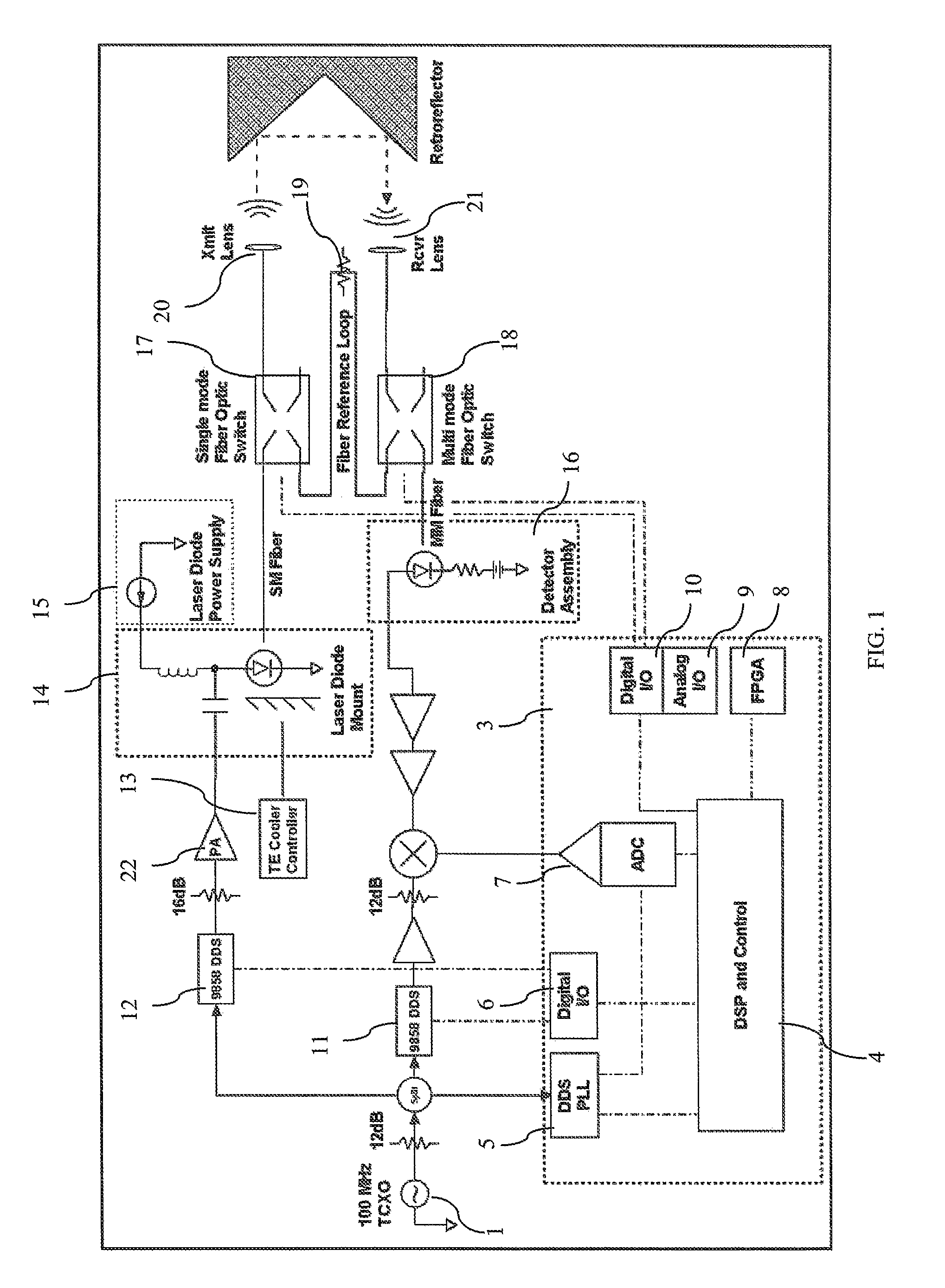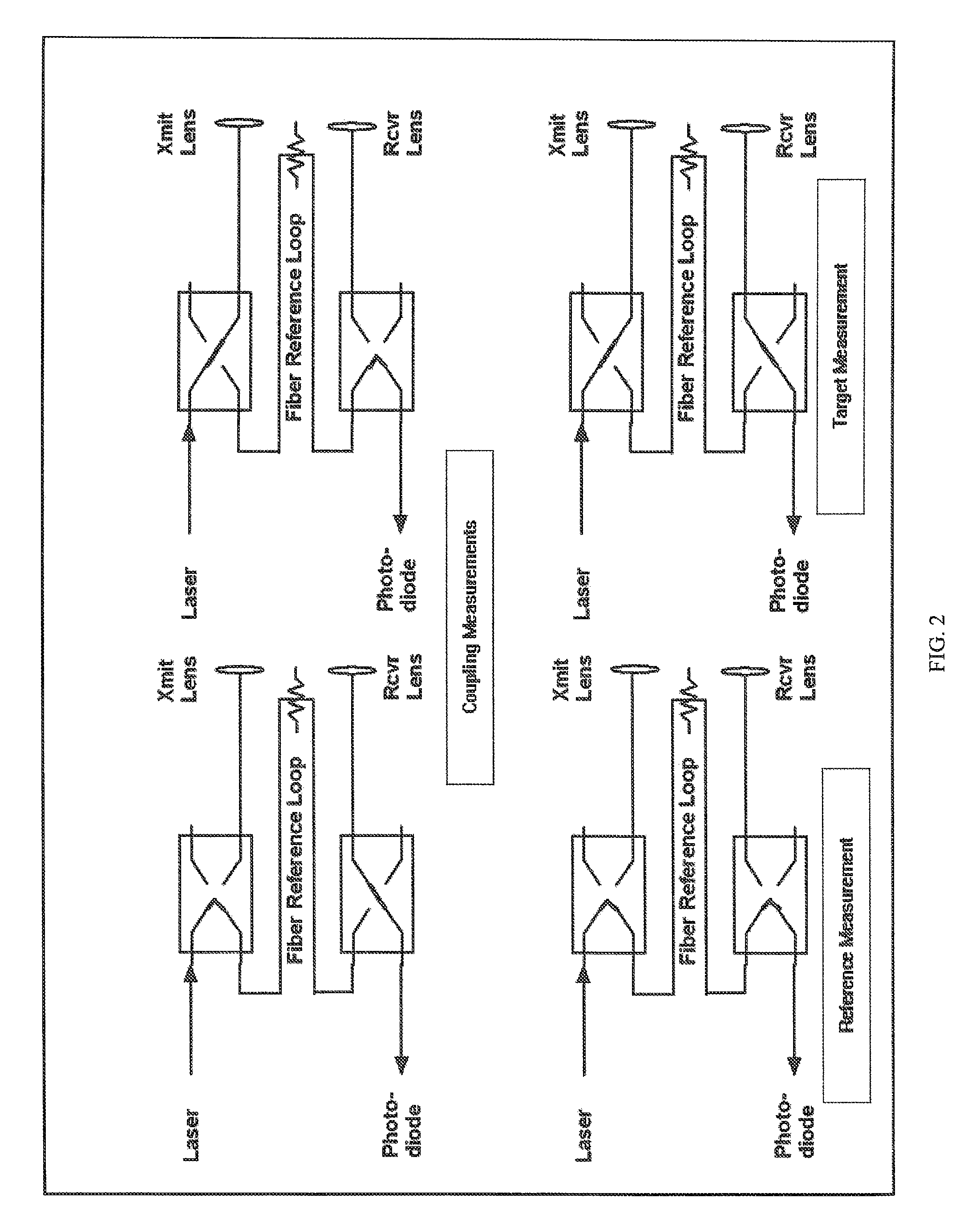Fiber optically coupled, multiplexed, and chopped laser rangefinder
a laser rangefinder and optical coupling technology, applied in the field of optical coupling, multiplexing, and chopped laser rangefinders, can solve the problems of low rate, low-offset frequency phase noise errors, and inability to permit the requisite length measurement accuracy, so as to reduce pointing problems and small scale turbulence.
- Summary
- Abstract
- Description
- Claims
- Application Information
AI Technical Summary
Benefits of technology
Problems solved by technology
Method used
Image
Examples
examples
[0055]In operations of the present invention, differential range between transmitter / receiver optics and a hollow retroreflector mounted on the three-axis translation stage were measured at approximately a 1 Hz rate. The nominal distance between them was 20 meters. The transmit beam and the receive beams were collimated with effective IFOV (Instantaneous Field of View) to the half-power diameter of approximately 1.0 and 2.5 milliradians, respectively. Path group index was calculated every two minutes using eight air temperature sensors, barometric pressure, and relative humidity. The local oscillator frequency for all experiments was 203.125 MHz, with transmit frequencies offset by integral multiples of 1525.87890625 Hz. In most cases 8192 samples of all four signal paths were taken, and at powers of two divisors of 48828.125 Hz.
[0056]FIG. 3 illustrates the results of a long term (10 day) range stability test. The first two panels, showing the estimated distance-equivalent phase, cl...
PUM
 Login to View More
Login to View More Abstract
Description
Claims
Application Information
 Login to View More
Login to View More - R&D
- Intellectual Property
- Life Sciences
- Materials
- Tech Scout
- Unparalleled Data Quality
- Higher Quality Content
- 60% Fewer Hallucinations
Browse by: Latest US Patents, China's latest patents, Technical Efficacy Thesaurus, Application Domain, Technology Topic, Popular Technical Reports.
© 2025 PatSnap. All rights reserved.Legal|Privacy policy|Modern Slavery Act Transparency Statement|Sitemap|About US| Contact US: help@patsnap.com



